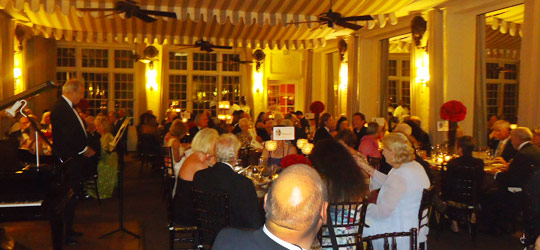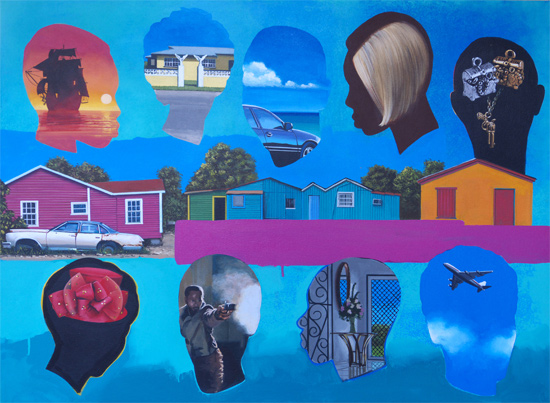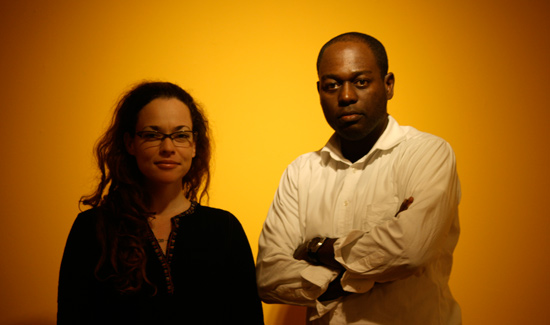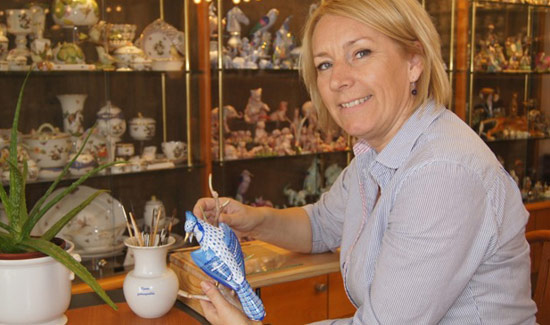 The “Bizet to Broadway Night at the Opera” was presented in association with the Nassau Music Society under the distinguished patronage of His Excellency Sir Arthur D. Foulkes, Governor General of The Bahamas, at the Old Fort Bay Club on Saturday night.
The “Bizet to Broadway Night at the Opera” was presented in association with the Nassau Music Society under the distinguished patronage of His Excellency Sir Arthur D. Foulkes, Governor General of The Bahamas, at the Old Fort Bay Club on Saturday night.
The concert, the proceeds from which will go towards master classes and partial scholarships for young Bahamian vocalists, was generously and expertly arranged by Cornelia Nihon in conjunction with Michael McMahon, one of Canada’s foremost vocal coaches and piano accompanists.
Much appreciated assistance was provided by Liz Covington, Melissa Maura, Rosemarie Alexiou, Michelle White, Patrick Thomson, and Italia Watkins-Jan, all of whom were critical to the success of the evening. We are most grateful to the Old Fort Bay Club as well for having played its part to perfection in making the event a great success.
The performers for the evening were four young Canadian opera singers and their piano accompanist. No programme of their selections was provided, since their stated preference was that each song be a surprise. Indeed, every song was readily identifiable to this audience, which sighed with satisfaction as one favorite after another was introduced.
As a tribute to the champagne reception by the pool and a gourmet dinner with wonderful wines, the quartet of singers launched the evening’s entertainment with Brindisi (Toast), the drinking song from La Traviata (The Lost One) by Giuseppe Verdi (1813 – 1901), sung enthusiastically by all.
Non piu andrai (No longer go) from Le Nozze di Figaro (The Marriage of Figaro) by Wolfgang Amadeus Mozart (1756 – 1791) was offered next by baritone Gordon Bintner, who possesses a voice that is as warm and rich as molten dark chocolate. This was immediately followed by another Mozartean favorite, La cí darem la mano (There we will hold hands) from Don Giovanni, where the wily Don (baritone Bintner once again) seduces the coquettish Zerlina (delicious mezzo-soprano Julie Nesrallah).

Tenor Keith Klassen next had us swooning over Dein ist mein ganzes Herz (Yours Is My Entire Heart) from Das Land des Lächelns (The Land of Smiles) by Franz Lehar (1870 – 1948). The temptation to sing along was strong, but we restrained ourselves admirably.
Non mi tentar (Do not tempt me) and E allor perché (And then because) from Pagliacci (the second half of the usual Cav and Pag operatic programme) by Ruggero Leoncavallo (1857 – 1919) were sung ardently by our stunning soprano Gianna Corbisiero, Canadian born and of Italian descent, and our handsome baritone Gordon Bintner.
Mezzo-soprano Julie Nesrallah then continued with the Seguidilla (Près des remparts de Séville translated as “Near the ramparts of Seville”) in the title role of Carmen by Georges Bizet (1838 – 1875). This certainly was as seductive a performance as we will ever hear.
Next Mr. Bintner took center stage with his very lyrical bel canto offering of Vi ravviso (It seems to me) from La Sonnambula (The Sleepwalker) by Vincenzo Bellini (1801 – 1835). Then the quartet returned to sing Bella figlia dell’amore (Beautiful daughter of love) very convincingly from Rigoletto by Giuseppe Verdi (1813 – 1901).

Ms. Corbisiero next delighted us with her comedic talents as she sang Griserie (Intoxication) from La Perichole by Jacques Offenbach (1819 – 1880). As I mentioned earlier, since the audience was treated to this gem after having partaken of a champagne reception followed by a gourmet meal complemented by fine wines, many of us could identify with the spirit of the piece!
We were then immersed once more in the French language, wafted there by means of the moving duet Au fond du temple saint (Inside the sacred temple) from Les pêcheurs de perles (The Pearl Fishers) by Georges Bizet as sung by Mr. Klassen and Mr. Bintner. These gentlemen had a genuine rapport, forged I’m sure by mutual appreciation of and respect for each other’s artistry.
We would be remiss if we were not to offer kudos to the piano accompanist, Professor Michael McMahon of the Schulich School of Music at McGill University in Montreal. As always, Professor McMahon performed with admirable restraint on an instrument whose lid was up, knowing when to be in the foreground, when to be in the background, and when to be an equal partner in the dialogue between himself and each vocal soloist.

The second half of the programme was devoted primarily but not exclusively to offerings from Broadway. Mezzo-soprano Julie Nesrallah tugged at our heartstrings with The Man That Got Away from A Star Is Born by Harold Arlen (1905 – 1986) and Ira Gershwin (1896 – 1983). My personal feeling is that Ms. Nesrallah’s voice is too cultivated for this torch song, but her interpretation was excellent nevertheless.
This was followed by a rather wistful number, Younger Than Springtime, from South Pacific by Richard Rogers (1902 – 1979) and Oscar Hammerstein II (1895 – 1960) as sung longingly yet excitedly by Mr. Klassen in the role of Joe Cable. Mr. Klassen’s star shines brightest in songs of this type.
Ms. Corbisiero then returned as Eliza Doolittle, singing I Could Have Danced All Night from My Fair Lady by Alan Jay Lerner (1918 – 1986) and Frederick Loewe (1901 – 1988). Here, her voice and characterization were spot-on. Flirting, moving from gentleman to gentleman like a butterfly from flower to flower, Ms. Corbisiero gave a bravura performance!

Continuing with a work from Camelot, once again by Lerner and Loewe, baritone Gordon Bintner as the gallant Lancelot sang If Ever I Would Leave You with all the heartache and passion that this song demands. (Full disclosure: This song brings back so many memories for me, because I sang the role of Guinevere in Camelot many years ago in Connecticut.)
Not to be outdone, mezzo-soprano Julie Nesrallah sang the very funny song Amor from Cabaret Songs by William Bolcom (1938 – ) and Arnold Weinstein (1927 – 2005). Her expertise as a character actor as well as her vocal gymnastics as she leaped wide intervals with the greatest of ease made this performance one of the highlights of the evening!
Next on the programme was tenor Keith Klassen, who, in his role as Calaf, il principe ignoto (the unknown prince), took us to China by way of Italy with Nessun dorma from Turandot by Giacomo Puccini (1858 – 1924). This is one of the best-known tenor arias in all opera, and it elicited many “ohs” and “ahs” of recognition from the audience.
The evening’s penultimate offering was The Prayer by David Foster (1949 – ) and Carole Bayer Sager (1947 – ), made famous by Celine Dion and Andrea Bocelli but sung more richly and warmly and also most touchingly by Ms. Corbisiero and Mr. Klassen both in English and in Italian.
Last on the programme was the duet Con te partiró (With You I Will Go) by Francesco Sartori (1957 – ) and Lucio Quarantotto (1957 – ). I imagine this piece was chosen to end the concert partially because the English name of the song is given as Time to Say Goodbye, even though that is not really an accurate translation. The quartet’s lush voices blended most captivatingly for a perfect grand finale.
The encore provided a return to the realm of opera, with the quartet once again delivering a rousing performance of Libiamo (Let’s drink) from Verdi’s La Traviata. And so we closed the evening as we had opened it, with warm fellowship, high spirits, and gratitude for such a wonderful evening of earthly delights.
Submitted by Anita L. MacDonald, MMus, MS, MBA, GPC/MIS



